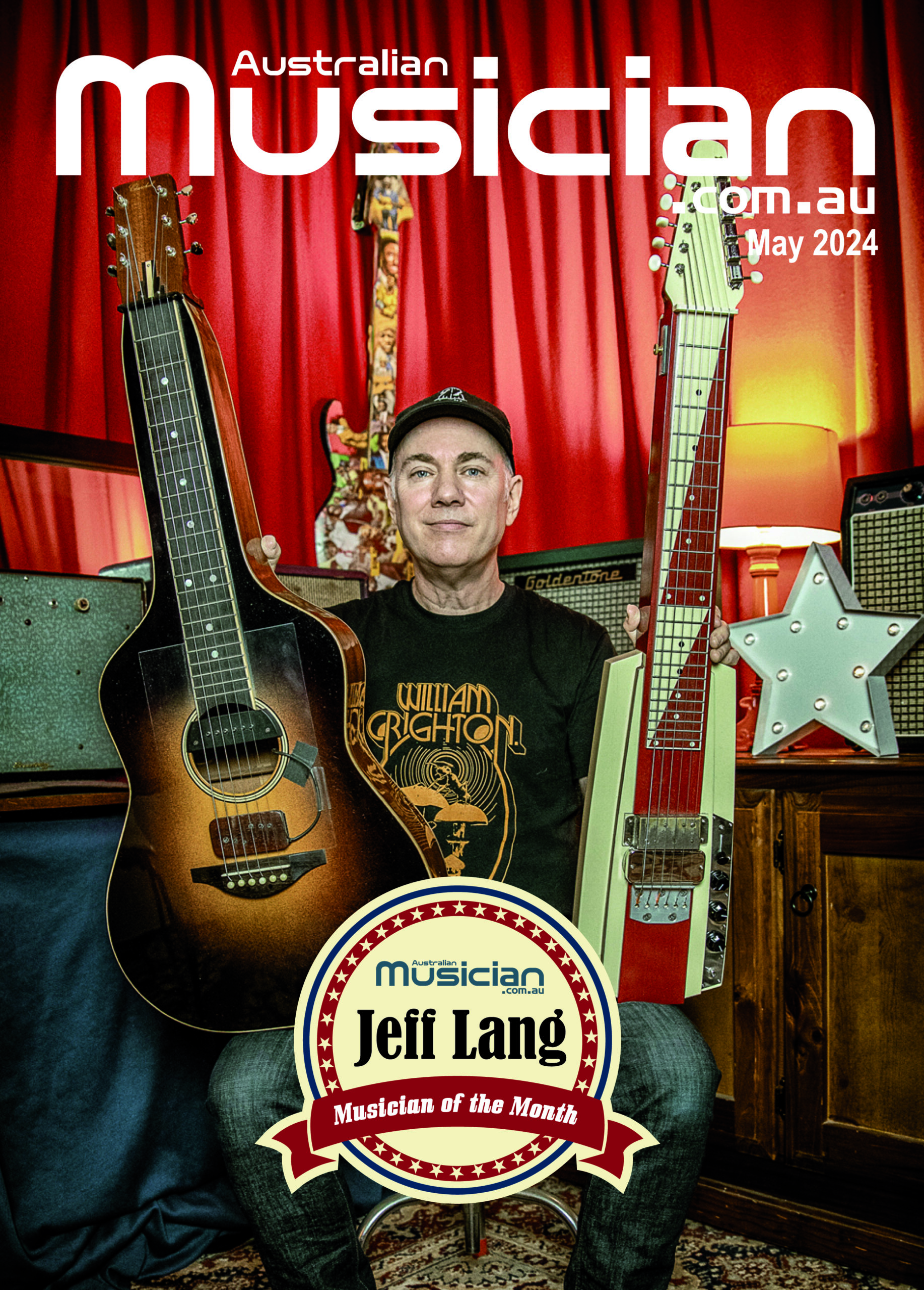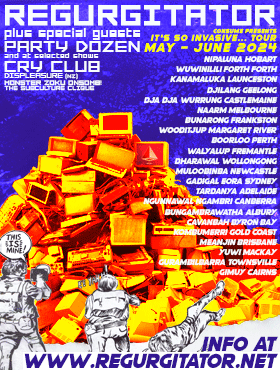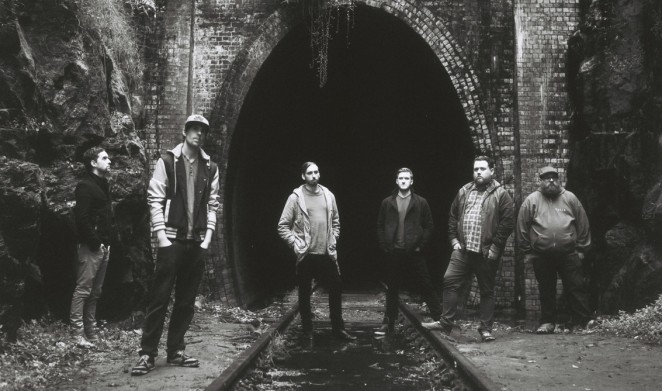
One listen to We Lost the Sea’s 3rd album Departure Songs and you’ll be struck by the stunningly emotional musical journey they present … and that’s without knowing a thing about the profound nature of its creation. Delve deeper into the band’s history, the back story of the recording and you’ll be left in awe of their achievement. Formed in 2007 by a bunch of close friends in Sydney, We Lost The Sea had released two albums previously and had begun to attract a loyal following of fans with their quality progressive rock performances. Led by charismatic frontman Chris Torpy, the band were picking up regular support slots with bands of significance in their genre. Devastatingly, in March 2013 Chris Torpy took his own life. The band were booked to support Texan band This Will Destroy You, a band they all greatly admired two weeks later. Amid the sheer heartbreak and numbness, the band decided to fulfill that gig commitment as both a tribute to Chris and a gesture of solidarity. The grieving continues to this day and is laid bare on their new album Departure Songs. They’d considered and even tried out another singer but for now and perhaps forever, We Lost The Sea is an instrumental band. Departure Songs is thematic, with the five epic tracks on the album telling the story of ill-fated adventurers and selfless heroes, all meeting their demise in the cause of a quest. There’s the Challenger astronauts, Chernobyl nuclear disaster heroes, Antarctic cave divers, all warriors of honour. Departure Songs might be the sound of loss but it’s also the realisation for those who survive that life goes on. Departure Songs was clearly created for Chris Torpy but also for the band. It’s the album they needed to make.
Australian Musician’s Greg Phillips spoke with We Lost The Sea formation member Mark Owen about the band’s origins and the recording of Departure Songs.
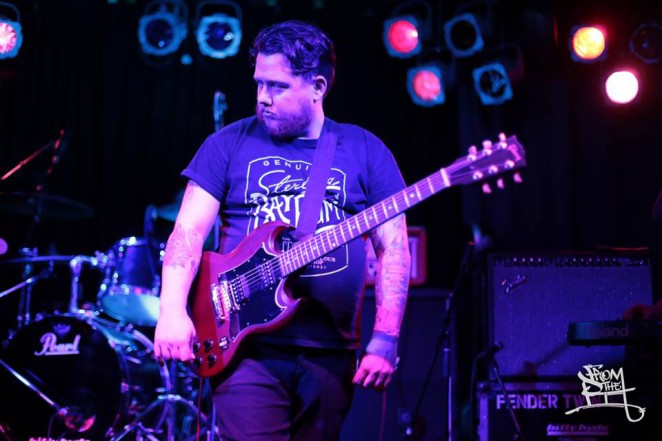
Where did Mark Owen’s musical journey begin? What music were you into growing up?
My sister grew up listening to Triple J and so a lot of bands I was into were Australian bands like Grinspoon, silverchair, You Am I. I guess one of the most influential albums for me was Augie March’s first album, Sunset Studies which was this weird ethereal strange album that I really liked and my friends couldn’t understand why I liked it. I should have cottoned on back then. My parents had good taste in music so I grew up listening to heaps of Led Zeppelin and Pink Floyd, and Queen as well. I love Queen. Then I did what everyone does at 15 I guess and got into punk and hardcore. When I was 17, 18 I started getting into Poison the Well and Converge. I was late to the party. But I never really felt like I had found what I liked. Then I remember hearing Cult of Luna’s Somewhere Along The Highway for the first time and I thought, wow this is it! This is what I have been looking for. So it all branched out from there and I discovered a whole bunch of really cool bands.
Departure Songs is the band’s first instrumental album. Obviously losing Chris Torpy was devastating. Did you consider using a different vocalist or was the decision to go instrument instant?
Yep, we did. We talked about it a fair bit. There was actually someone lined up to do it who was a close friend of Chris. He’s a really great vocalist. He came in and had one jam with us on Chris’s songs. Then he said he didn’t feel comfortable stepping into Chris’s position. After that we talked about it a lot. We never made the decision not to. We never said adamantly that we were never going to have a vocalist. We got to the point where we said we have an album full of music. It’s good enough to be instrumental music so let’s make an instrumental album.
How long did it take you guys to get to the point where you could even think about making music again?
After Chris passed we had a gig with This Will Destroy You at the Annandale about two weeks later. We wanted to make a point of playing that show for us and I think if the band was going to have any longevity, we needed to play that show. It was really cathartic and felt really good. It was emotional and horrendous at the same time. There are days where we still struggle with it. Even just in the jam room or on stage, sometimes with new stuff, cos that is really cathartic as well, sometimes it spills out and you’ll see one or two members with tears in our eyes. I guess it’s all part of the journey and the healing process. I consider ourselves really lucky that we have an outlet where we can put our feelings into music. I feel like if I didn’t have the creative outlet, I wouldn’t know how to deal with the grief.
Is this definitely the band’s direction now? You’re now an instrumental band?
For now, yes I guess. Never say never. We’re talking about doing some really cool stuff and some of it involves vocalists but maybe not how we used to be. We haven’t really thought much past this record at this stage. We’re hoping to ride the coat tails of this release for a little bit longer. In terms of being an instrumental band, it feels like we are just starting out again as a band.
How did you come up with the concept of setting music to these epic stories of the journeymen you’ve based the songs on?
That came about after writing the first track for the album, which was The Challenger one. One night I stayed up real late watching heaps of YouTube clips on The Challenger disaster. I remember one video, they were filming the parents of the school teacher who went up and the shuttle just explodes and the camera pans to the parents and I just felt, wow that is so full on. We were jamming and I thought this song really fits that story. We started talking about it and how it could be a metaphor for Chris and it went from there. We kept finding really messed up, full on stories. So lots and lots of Googling!
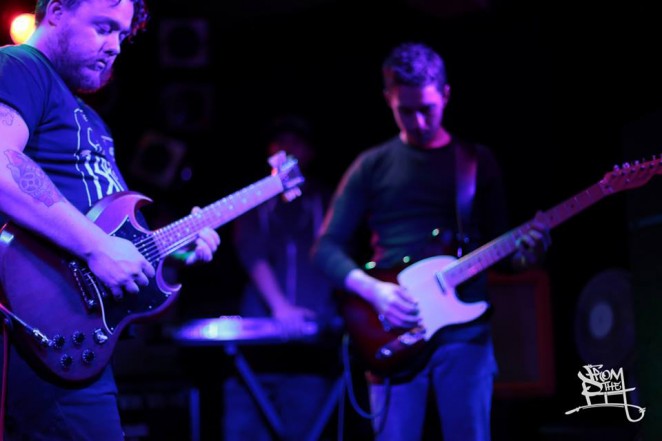
The speech in part one of that song, where’s that from?
That was our guitarist Matt. We written the song and began with the drone. We were looking for something a little out there and ethereal. He found this William S Burroughs lecture. He cut it up and made sense of it because the original version is really long and he sounds like he is dying. He was a bit of a tripper so it’s kinda cool but ties in with everything.
How were these songs constructed? What was the starting point for them?
Usually it is just a riff. If you broke it all down, you wouldn’t find that many riffs on the record. Usually someone comes in with a really cool idea and we jam on it. Play it over and over, not talk about it much and just see what happens. Writing long songs is not hard for us. The hard thing is making it interesting for everyone else.
This is your 3rd album. What kind of things did you learn which you might take into the next album?
One of the things for me personally, which I had learned, was letting go of control of the record a bit more. Also I guess not worrying so much how the music was going to be perceived or taken. For everyone, it was a really personal release but I found it really daunting to release a record into such a strong instrumental scene, especially in Sydney. I was concerned it wasn’t going to hold up but the response has been amazing. One thing I learned was to just worry about the music and everything else will sort itself out.
Tell me about the gear you use with this band
I am playing an EGC, Electrical Guitar Company, a little custom guy which has got a metal neck. It weighs about a 100 kilos! I think it is beautiful, it’s my favourite guitar. I am using a Fender Thurston Moore jazzmaster signature model, which has a really unique sound because of the antiquity pickups in it. They’re like weird P90s. I also have this SG I bought years ago. Still playing through an orange AD140, a monstrous head, either through my orange or Mesa cab and a hundred million pedals. I think on the last record I had 4 pedals which I used for one thing, delay mainly. Since then we have gone pedal crazy.
Is there one pedal which features on the album more than others?
My main drive sound is a really cool JHS pedal, a Morning Glory. It’s a really light overdrive, a low gain drive. My favourite pedal is the Strymon El Capistan delay and that is on pretty much everything. Also the Strymon Flint, I love it. On the El Capistan there is a wow and flooder and a tape age and on the Flint you can change the colour and also has a trem and a reverb, they’re great pedals.
Have you needed to acquire new gear to play the new album live?
Not really. We had it all set up going in. I have acquired some gear since then. We have always made a point of being able to replicate what we do in the studio live. Now we use a sample pad to trigger some of the samples, including the choir that is one one track. Our keyboardist Matt plays two keyboards now, like he’s in Rush or something!
What are the plans for the album and the band from here? Do you hope to play overseas?
That’s the goal. Our label is Birds Robe. Mike Solo who heads that up and is the manager of Sleep Makes Waves, he has some cool contacts overseas. We had a meeting with him to discuss a plan and the plan is to hopefully get to Europe early next year. We’re knocking on some doors. We just signed with a label in the states. Our single goal is to play a show on foreign soil. That’s the goal we have set for this record. Play some shows overseas and then reassess. If I was still playing some shows here and overseas and making some money in ten years I’d be happy. We’ll keep pushing and see how far we can take it.
If you are in need of advice on depression or anxiety or know someone else who does, Beyond Blue is available to assist

